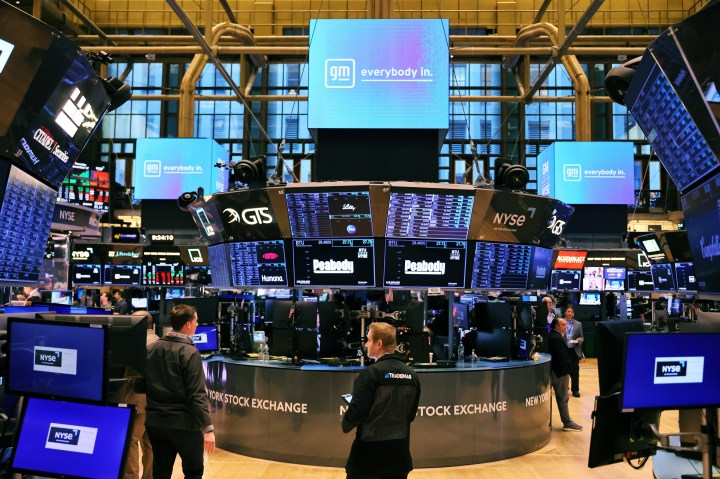
Who are “the markets”?

This is just one of the stories from our “I’ve Always Wondered” series, where we tackle all of your questions about the world of business, no matter how big or small. Ever wondered if recycling is worth it? Or how store brands stack up against name brands? Check out more from the series here.
Listener John Matthesen asks:
Who are “the markets”? We hear on the radio (or podcast) frequently things like “the markets are watching” or “the markets are happy about…” or “the markets didn’t like…” I get that there are things like ASE or NASDAQ, but there are people too. Maybe this is just too obvious, but “markets” don’t have feelings or opinions. Who are these people that we call “markets”? Is there a designated group like S&P 500? Or is it just whatever suits the story at the moment?
The phrase “the markets” has typically become a shorthand for the major indexes: the Dow Jones Industrial Average, the S&P 500, the Nasdaq composite.
Experts typically refer to those indices because they’re able to capture the overall sentiment of the market or because of long-standing tradition, explained Mark S. Shore, a clinical professor of finance at DePaul University.
The S&P 500, for example, captures about 80% of the U.S. stock market capitalization, he said. And the Nasdaq Composite Index captures more than 3,000 stocks.
Meanwhile, Shore thinks part of the reason experts commonly refer to the Dow Jones Industrial Average is because of its longevity — it’s the country’s second-oldest market index and first emerged more than a century ago.
“Marketplace Morning Report” host David Brancaccio previously told us: “When people ask ‘What did the market do today?’ I find they usually are referring to the Dow Jones Industrial Average and will accept no substitutes.”
However, as listener John Matthesen pointed out, people do personify the markets, imbuing them with human characteristics by suggesting they can react positively or negatively to the news. “Who” are these people and why do we do this?
Well, experts say that these indexes do represent investors.
“The price of any security is the aggregate opinion of all the investors out there,” said Anna Scherbina, an associate professor of finance at Brandeis University.
Kevin Yost, an associate professor of finance at Auburn University, said when you hear the phrase “the markets,” you can think of it as “a generic term for everybody who’s buying and selling.”
Because markets are aggregating reactions from all participants, if there’s a positive jobs report, it becomes easier to just say “markets are pleased with the report” as opposed to “investors in the markets are happy,” noted Honghui Chen, a finance professor at the University of Central Florida.
But Scherbina said there are caveats, with some investors’ opinions failing to be represented in an index or a company’s stock price.
For example, she said if a company changes CEOs, some people might view it as good news, prompting them to buy a stock and drive the price up.
If others think it’s bad news, they may sell the stock, driving the price down a bit, which could end up canceling the trades. But more pessimistic investors who are interested in short selling a stock might end up just sitting “on the sidelines,” since volatility can make short-selling costly, according to a paper Scherbina co-authored.
“So even though the market index is a reflection of how investors think, it doesn’t necessarily capture all the information at all times,” Scherbina said.
And what adds a layer of complication to this question is that algorithms are increasingly responsible for market trades. CNN reported back in 2018 that computers account for 50%–60% of market trades, and even up to 90% during periods when the market is volatile.
“There’s a lot of effort spent to do natural language processing so that computers can read the news and understand if it’s good news or if it’s bad news and trade on the news really quickly — faster than what a human could do,” Scherbina said.
Human views are programmed into these algorithms, Scherbina said, so there is still a human element when it comes to trades made by machines.
There’s a lot happening in the world. Through it all, Marketplace is here for you.
You rely on Marketplace to break down the world’s events and tell you how it affects you in a fact-based, approachable way. We rely on your financial support to keep making that possible.
Your donation today powers the independent journalism that you rely on. For just $5/month, you can help sustain Marketplace so we can keep reporting on the things that matter to you.












